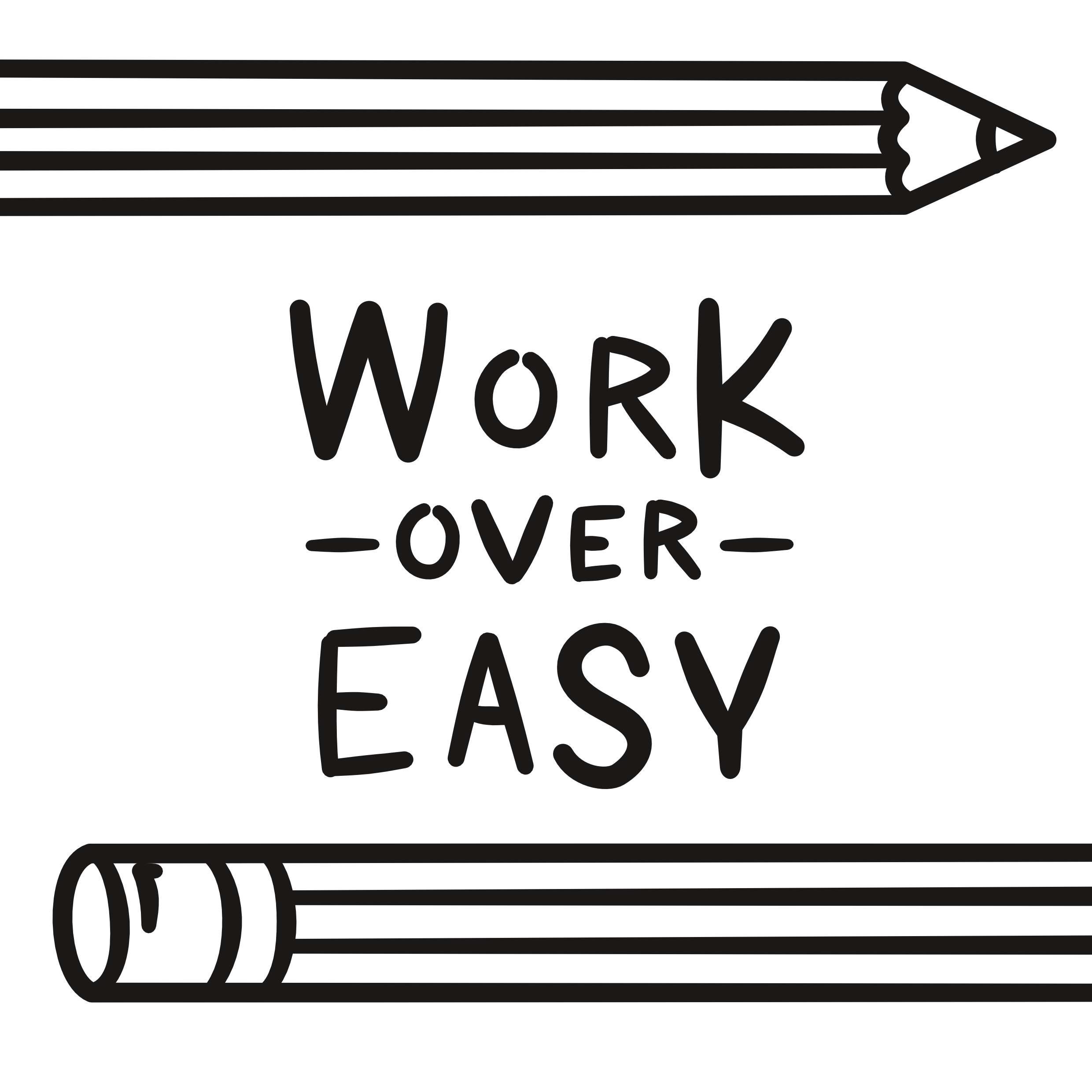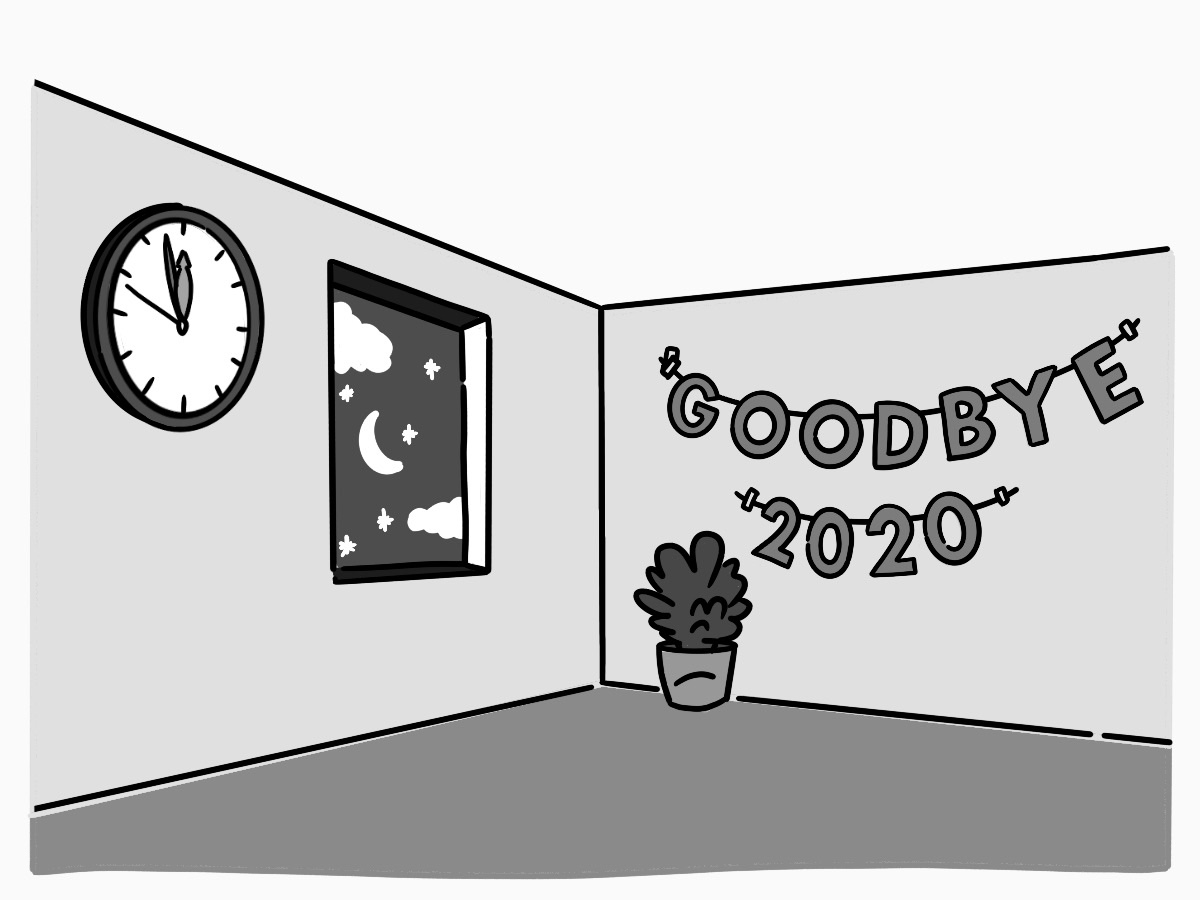Well that was 2020.
It was, is, a tough one to say the least. But I’m glad I made it through and that I made it through still with loved ones around me (if remotely) and with so many things to be thankful for.
If I was feeling like I hadn’t achieved anything much in previous years, that doesn’t even compare to the feeling of stasis that has come with a year spent inside and anxious. But I think this is also the year I’m most grateful to have made it through.
I’ve learned and grown and even managed to make a few cool things. I’ve made a space to imagine the future. I’ve been part of a team making immigration appeals more accessible. I’ve drawn a giraffe on a sled for The Browser. I’ve given workshops. I’ve learned how to run. I’ve read a few books. I’ve discovered new things to love. I’ve realised I can be thankful for just being here.
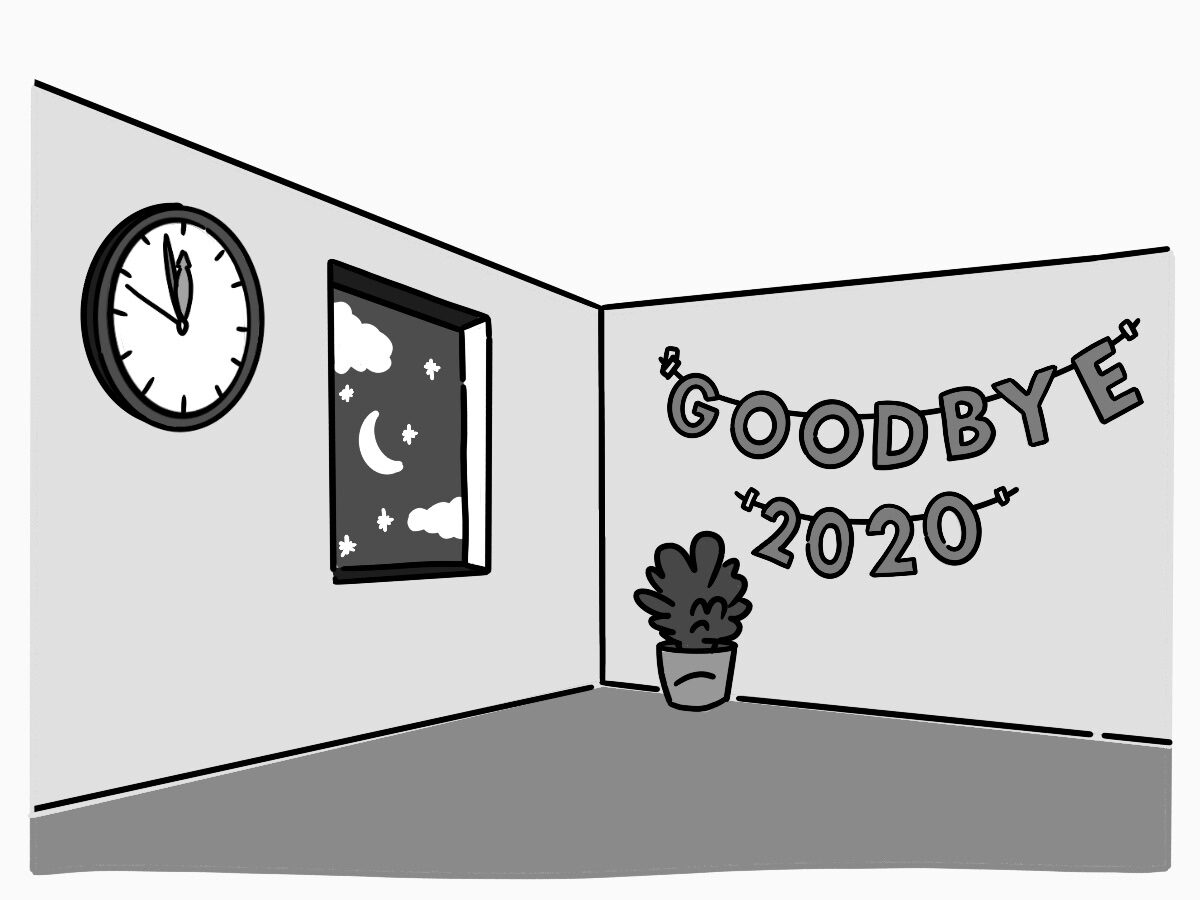
This year I read Braiding Sweetgrass by Robin Wall Kimmerer. It’s a book about how to look with fresh eyes at the whole living world, as Kimmerer draws on her knowledge and experiences from her life as an Indigenous scientist, a mother, and a woman. As with every book about nature I read at the minute, I feel I’m learning as much about how I navigate the world as I am about how to see aster and goldenrod in a new way.
I’d highly recommend spending some time with this book, particularly as my summaries and thoughts here barely scratch the surface of its nuance and wisdom.
Kimmerer explains how many Indigenous communities see every living thing as having its own gifts. Those could be a beautiful song, a delicious fruit, healing properties or the ability to sustain life itself. Those gifts are shared. But they also come with a responsibility to be used.
When you start to think of everything you see around you as having a gift that it might share with you and the rest of the world, there’s a shift that happens. There’s a reassuring abundance around you. I’m finding it even as I take my evening walks, when I stop to look around me and I spend more time looking for life and more time appreciating it.
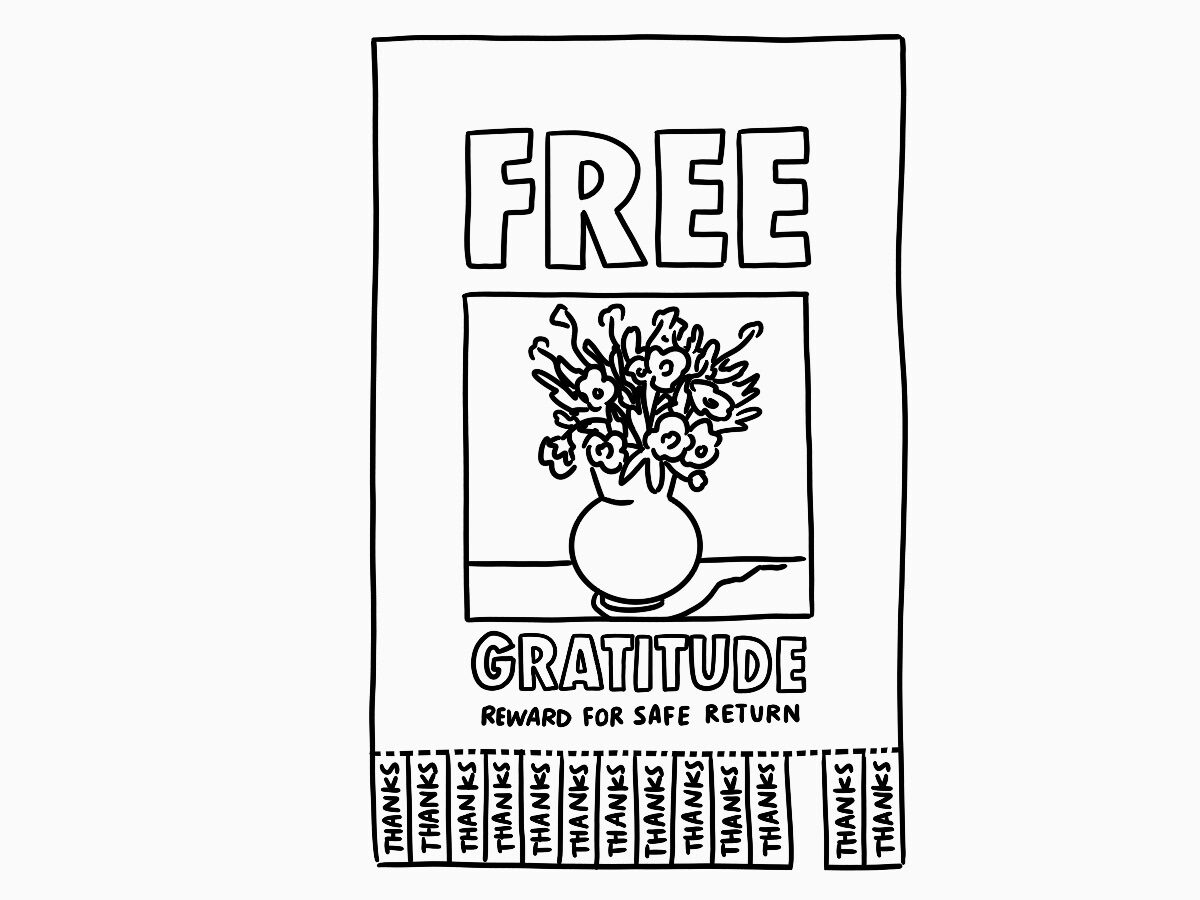
That idea of abundance is a huge shift from the way we’re so often sold scarcity as a way not only of viewing the resources around us but also as a way of being.
But in order to embrace abundance you can’t just take. There isn’t a cornucopia to be hoarded. Instead there’s a conversation to be had. A gift must be freely given, not taken.
There’s also the moral (not transactional) obligation that comes with a gift. There’s a need for reciprocity.
The gift you give should be based on your own strengths and skills. As people the one gift we can all always share is gratitude. That’s not to say that we can’t and shouldn’t do more to reciprocate what nature gives us, I wholeheartedly believe there’s a lot more in our power than we currently act on or even acknowledge, but perhaps that’s for another Sunday newsletter. But we always have gratitude.
That’s what I’ve been thinking about recently and it’s loosened the tightening in my chest that’s come with all that’s been taken and twisted this past year. I’m looking out for what’s freely given and I’m being as grateful and reciprocal as I can. I’ve always loved smiling and offering a (sometimes too hearty) thank you to anyone who offers space on the pavement as I run. But I want to do that with everything I do.
How can I make my life a good harvest? Obviously I can’t change everything I engage with, we do live in commodity based societies, but how can I make my mindset at least one of a good harvest?
I think that’s the main question that I’ll be taking with me into the new year.
As it’s such a big one, I’ve broken it down into a few smaller questions and challenges to myself.
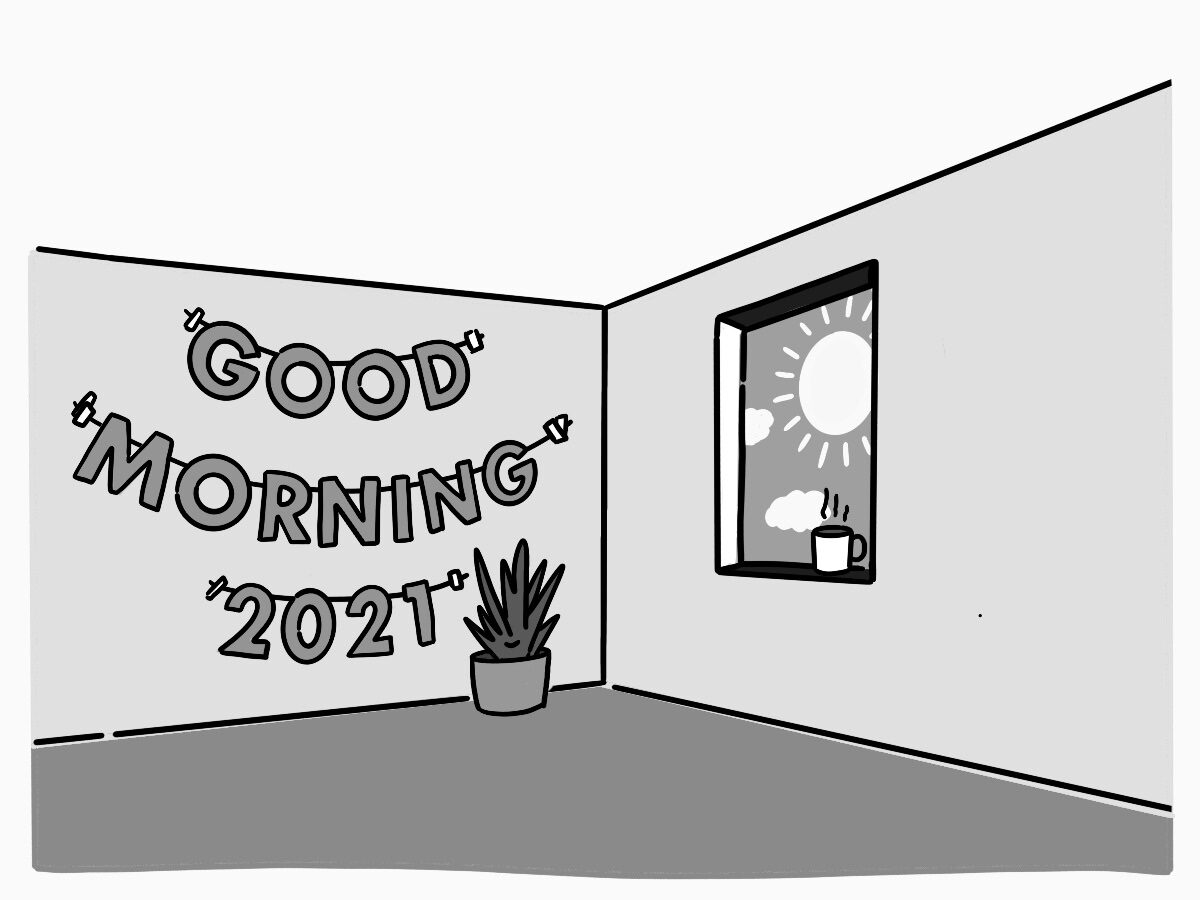
How might I recognise and give thanks for the gifts of others around me?
I want to take the time to give thanks not only for nature but those around me. I want to recognise strengths and not just needs and celebrate them.
How might I best fulfill the responsibilities of my own gifts?
I want to push myself to make the best work I can, that combines the gifts I have. That means making my research work visual and my visual work better researched. I also want to be more ambitious with what my gifts can do.
How might I focus on gifts rather than commodities?
I want to reframe as many relationships as I can, particularly around social media and my ‘web presence’ as giving and receiving gifts rather than transactions. That’s helped me so much with how I engage with my community elsewhere and I know it can do so much for me and others here too.
How might I respect the space my gifts need to grow?
Gifts have to be freely given and they’re also not infinite, I want to respect the fact that I can’t always give and that I might need time to develop work or even find and nurture new skills giving them the gift of my care.

